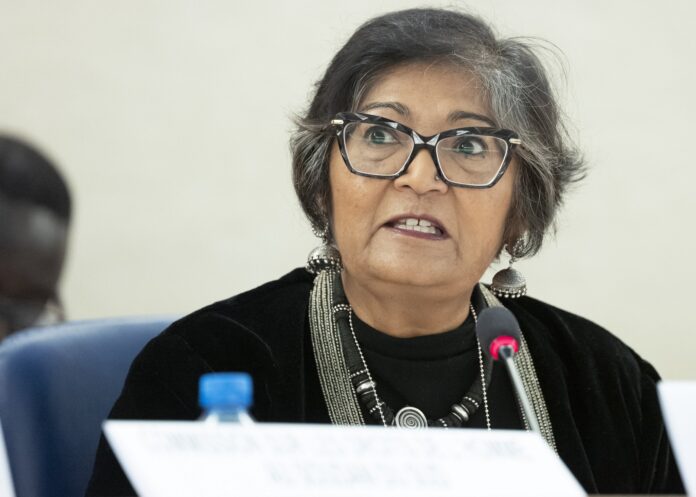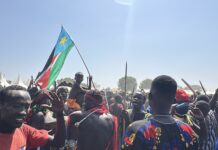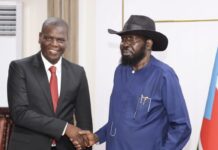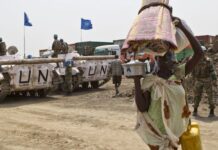The UN Commission on Human Rights in South Sudan is urging the African Union and UN Security Council to act swiftly as the country’s peace continues to unravel. Following a high-level mission to Addis Ababa, the Commission warned that South Sudan is at risk of sliding back into full-scale conflict due to rising violence, political fragmentation, and deep-rooted corruption.
Commissioner Barney Afako said armed clashes have intensified to levels not seen since 2017, while millions face displacement and rights abuses. Over 300,000 people fled South Sudan in 2025 alone, and more than 2.5 million remain in exile.
The Commission raised alarm over delays in establishing the Hybrid Court for South Sudan — a key promise of the 2018 peace deal calling on the AU to fulfill its responsibility to deliver justice.
Chairperson Yasmin Sooka emphasized that the region must act now to prevent further suffering, especially among women and girls, who remain the most vulnerable.
The Commission expressed serious concern over delays in establishing the Hybrid Court for South Sudan, a key transitional‑justice mechanism under Chapter V of the 2018 Revitalized Peace Agreement. Despite repeated calls from the AU Peace and Security Council, the court is yet to be operational.
“The promises made to victims years ago remain unmet,” said Yasmin Sooka, Chair of the Commission.
“The Hybrid Court must move from paper to practice. The AU has the mandate and moral responsibility to deliver a justice process that holds perpetrators accountable while strengthening national institutions.”
The deteriorating security situation has already forced an estimated 300,000 South Sudanese to flee the country in 2025 — many to Sudan (148,000), Ethiopia (50,000), Uganda (50,000), the DRC (30,000), and Kenya (25,000). The region now hosts over 2.5 million South Sudanese refugees, while another 2 million are internally displaced. Meanwhile, South Sudan also hosts more than 560,000 refugees fleeing the war in Sudan.
“These figures reflect a tragic failure to implement peace,” said Commissioner Carlos Castresana Fernández.
“To prevent another spiral of atrocities, the AU and its partners must act decisively not only to stop the violence but to build a just, sustainable peace.”
The Commission highlighted that women and girls are disproportionately affected, facing increased risks of gender-based violence and exploitation amid displacement and insecurity.
During its meetings in Addis Ababa with senior AU officials, IGAD representatives, UN envoys, and diplomats, the Commission urged immediate efforts to de-escalate tensions and fast-track the establishment of transitional justice mechanisms, including the Hybrid Court, the Commission for Truth, Reconciliation and Healing, and the Compensation and Reparation Authority.
With a joint AU–UN Security Council session scheduled later this week, the Commission urged both bodies to prioritize justice and accountability.
“The region and international community must now prevail upon South Sudan’s leaders to make a different choice — one that puts their people first,” Sooka emphasized.
The Commission concluded that only an inclusive, credible political transition backed by the AU, IGAD, the UN, and international partners can halt the country’s deterioration and restore hope for lasting peace.
The UN Commission on Human Rights in South Sudan, established in 2016 by the UN Human Rights Council, investigates human rights violations and promotes accountability. Its commissioners are independent experts supported by a Secretariat based in Juba.
The Commission stressed that only an inclusive political transition backed by AU, IGAD, and the international community can restore hope and lasting peace.





